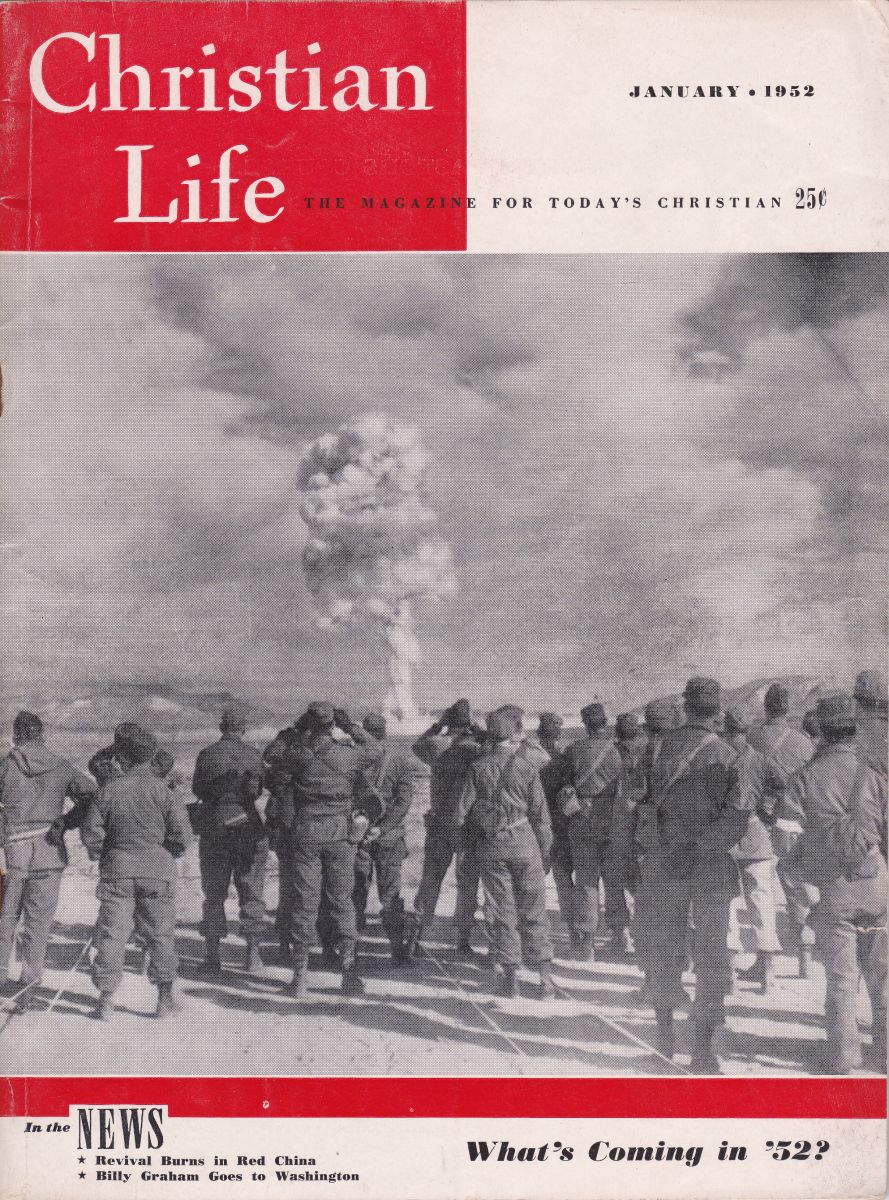| Perfect Peace
|
|
| Thursday, January 27, 2022 | |
Why do I seem to lack peace? (Or am I the only one feeling this way?). Sure, the growing sense of uncertainty—even insanity—in our world is a factor:
All of this is a massive part of my problem: where I’m looking—my focus. By contrast, Isaiah 26:3 promises,
Catch those two prerequisites? Our minds are to stay (continually) on God, with our trust fully invested in Him. We’re never offered any peace in any other way. In the end, peace is a choice. And peace is a Person.
Peace is a choice: “whose mind is stayed on you.” Despite our excuses, we absolutely, hourly, daily choose where we anchor our minds. Peace is a Person: “He trusts in you”—as in God Almighty. Not our culture. Not our country. Not our savings accounts. Not our hopes. Not our dreams.
A parting thought. In the middle of writing this blog, the Lord pointed out a sinful attitude I needed to address. In an unhurried way, I took time to confess that sin. The sense of peace that followed was remarkable. Try it! |
|
| Turn My Outside Inside
|
|
| Thursday, January 20, 2022 | |
Ava's head plopped low. Exhaling, she gave off a sigh full of as much frustration as a five-year-old can muster. She'd tried putting on her puffy winter coat all by herself. Instead, she'd managed to ball it up in a pretzel. That's when her sweet voice intoned, “Can you turn my outside inside?” If only fixing adult problems was as easy. Within the last 24 hours, my wife and I have been made aware of:
Every single one of these families now wonders how life got so twisted so quickly. But because they're believers, in their own way, they're also asking the Lord, "Can you please turn my outside inside?" How will their stories turn out? We know how we’d write the script, given a chance. But God is the Author of life. Still, it feels like all that’s left to us is prayer and an agonizing appointment in the waiting room of life. But as we pray and wait, it’s good to hear an ancient reminder from our most reliable Friend. In Isaiah 30:18, God assures every one of us with lives that are balled up into a pretzel, “Therefore the LORD longs to be gracious to you, and therefore He waits on high to have compassion on you.” Which means we can come to Him. Lean on Him. Cry on Him. So, gather your courage, find your voice—if only a whisper—and just say, “Can you turn my outside inside?” Spoiler Alert: He can. Even if the ending turns out differently than we expect.
|
|
| If Jesus Wore Cologne
|
|
| Thursday, January 13, 2022 | |
What if Jesus wore cologne—and it rubbed off on you? A former boss was ferociously fond of a strong cologne which he wore religiously. You could step into the empty elevator on the first floor and clearly sense his fragrance even though he may have ridden ten floors up in that elevator ten minutes earlier! It still hung thick in the air. After a recording session, the splash of his cologne even managed to rub off on the studio headphones. And if you ever shook his hand, you surely "shared" his cologne for some time afterward. Did you ever consider that the Son of God had a fragrance? It was the cologne of kindness and compassion. It preceded Him and followed Him everywhere He went. A fragrance so compelling, so intoxicating, it drew people to Him like butterflies to a bloom. Kindness for outcasts—Jesus had a splash for them. Compassion for the bruised and broken—Jesus had a splash for them. Need hope? Here’s a splash. Need healing? There’s a splash. In a world reeking of self-preservation, self-fulfillment, and self-promotion, the fragrance of Jesus is as strong as it ever was. But it won’t rub off on you and me unless we’re with Him. It's the only way. Maybe you could use a splash of that cologne right now at this very minute. There’s only one way to get it. So, I dare you—don’t be in a rush. Go to Him. Be with Him. Touch Him in prayer. And let others smell the fragrance of Christ on you!
|
|
| What's Ahead for the New Year
|
|
| Thursday, January 06, 2022 | |
How would you feel if you witnessed the detonation of an atom bomb? Seventy years ago this month, Christian Life Magazine featured a cover photo of 250 soldiers observing an atomic bomb explosion at a test site in Nevada. The probing headline asked: "What's Coming in '52?"
This feature responded to an ominous article from Collier’s Magazine titled, “The War We Do Not Want.” So, the magazine assembled a group of leading Christian businessmen of the day, asking them to assess where American Christianity was at—and where it might steer in the new year. D.F. McKechnie, prominent CPA, advised, "Saved people are too complacent and need to be instructed on giving an account of 'deeds in the body.’” Alfred Jackson, a Pennsylvania businessman, added, "The deadening poison of complacency is everywhere." Harry Smith, vice president (at the time) of the world's largest bank, observed, "Being carnal, many are more interested in who or what organization gets credit for what is done, than in doing. Let all the glory be His!" Asked to identify and prioritize the weaknesses that hindered evangelical Christianity in 1951, here’s what the group concluded:
Though published 70 years ago, that list sounds disturbingly familiar. But enough of gloom and doom. With Coronavirus, inflation, and supply chain shortages, we could use a shot of encouragement. Consider these words from the Christian Life article's conclusion: “While A-bombs fall and wars continue, born-again believers know they may rely on the time-honored formula for individual and national revival: If my people who are called by My name humble themselves, and pray and seek My face, and turn from their wicked ways, then I will hear from heaven, and I will forgive their sin and will heal their land (2 Chronicles 7:14). What's ahead for 2022? For better or worse, we don't know. But we serve a good God who does. And that's enough.
|
|
| Happy Endings
|
|
| Thursday, December 30, 2021 | |
We love happy endings:
It’s not that we’re pollyannish. We know life isn’t fair. The girl doesn't always get the guy. The job we're confident is God's will often eludes us. The cancer we pray would go into remission does so. Only to return and claim our loved one. Poised at the edge of a new year while glancing back at the old, this fascination of ours with happy endings is brought into sharp, even painful, focus. And here’s the brutal biblical truth: Nowhere in Scripture are we ever urged to look for happy endings in any earthly endeavor. Of course, there is no sin in happiness. Heaven will be full of it! And there is nothing saintly about scowls and frowns. But we cannot—must not—set happiness as the object of our earthly lives. That comes later!
The truth is, when we seek happy endings more than holy endings, we are seeking the wrong things. Jesus told us, "Seek first the kingdom of God and His righteousness." It’s about holiness—not happiness. And that takes us to a reality recalibration: Pursue holiness, not happiness. One is fleeting. One is forever. The joy of the Lord is our strength—but happy endings are not our right. Not while we walk this earth. Maybe this last year handed you more than a few disappointments. We’ve all had our share, I suppose. Then let’s remind ourselves earthly happiness is fleeting, but holiness is forever. Here’s to a new year filled with holiness!
|
|
| Records per page First Prev 23 24 25 26 27 28 29 30 31 32 of 129 Next Last | |
 Jon Gauger Jon Gauger |
|||||||||||||||
| Thursday Thought | |||||||||||||||
|
|
|||||||||||||||
Recent Posts
|


